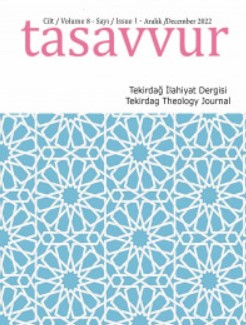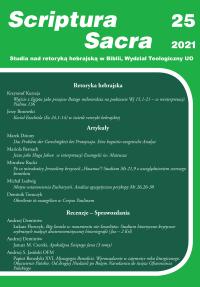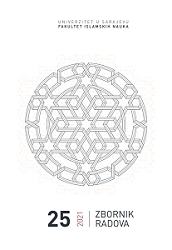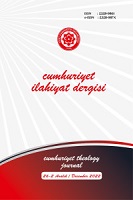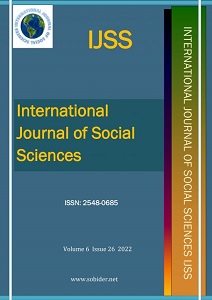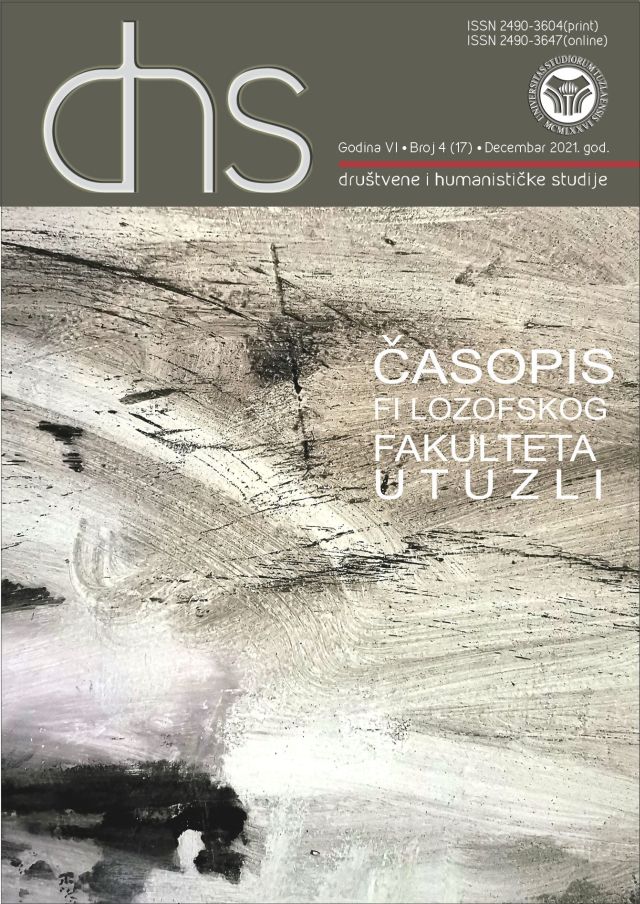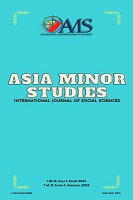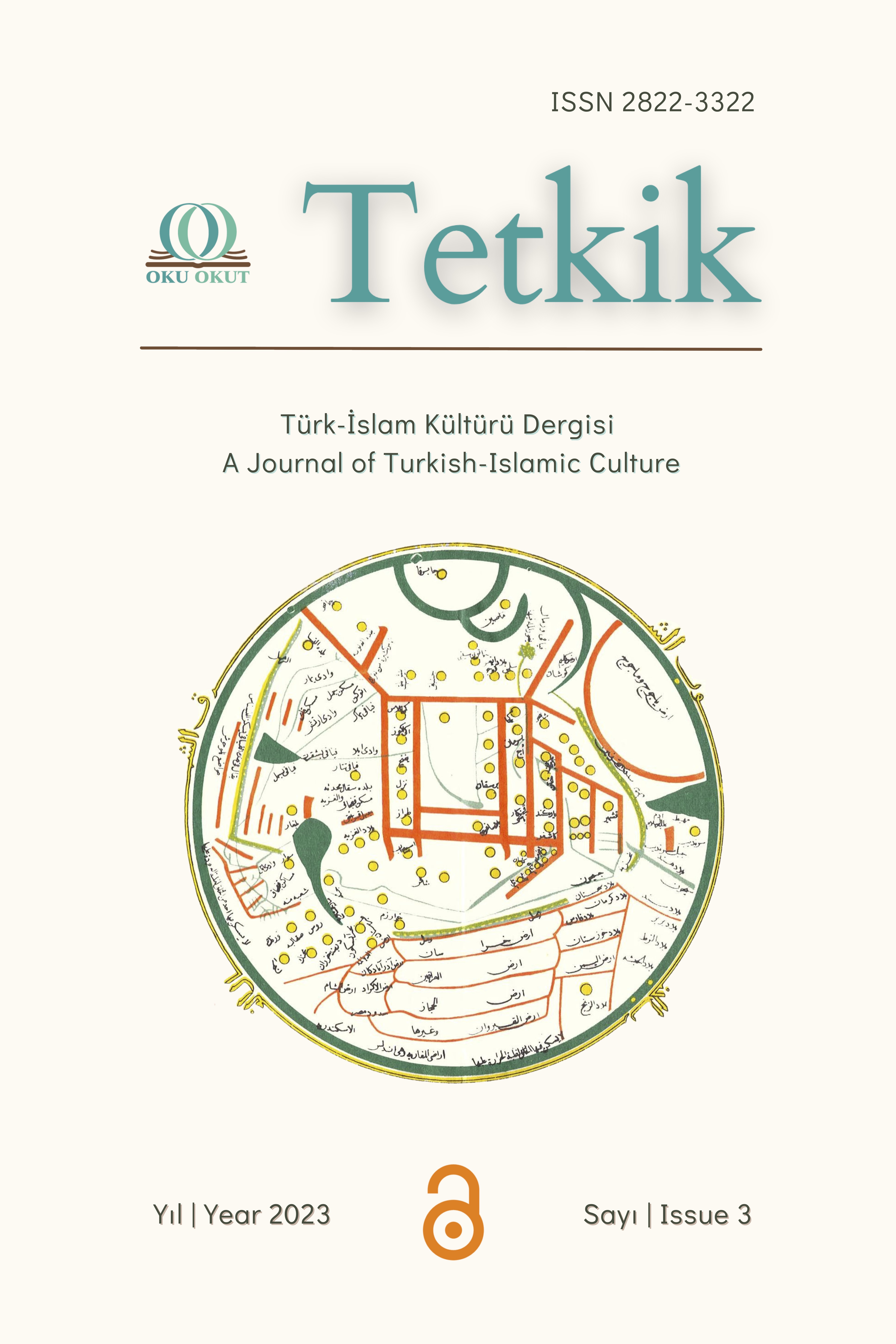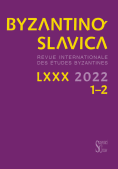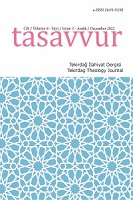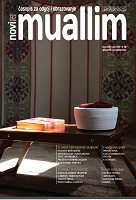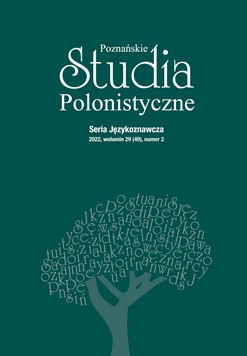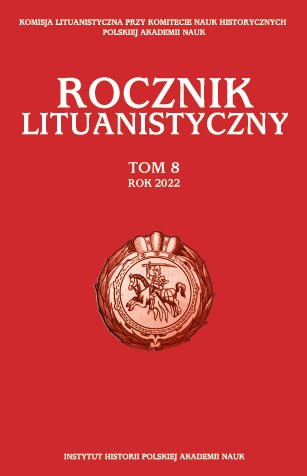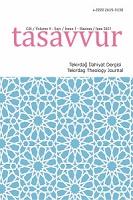Author(s): Muzaffer Kılıç / Language(s): Turkish
Issue: 2/2022
: In this study, the text of ‘Ubūdī-ye Gulshanī’s mathnawi Dar Fazīlat-e Ilm o Amal wa Qabāhat-e Jahl o Kasal (On the Virtue of Knowledge and Good Deeds and Immerit of Ignorance and Idleness), who is known to had lived in Egypt between the second half of the sixteenth century and the first half of the seventeenth century, will be examined. In this work of 359 couplets, which resembles a folk-type mathnawi and begins with a long introduction, the virtues of collecting knowledge and doing good deeds with it by avoiding ignorance and laziness as a religious obligation are mentioned. Throughout the mathnawi, the importance and obligation of seeking knowledge are emphasized by making direct quotations from the Qur’an verses and hadiths. As a matter of fact, this mahthawi, which emphasizes that the reason for the creation of mankind is to learn knowledge and find Allah, and that it should be on the path of knowledge from cradle to grave, is an example of an nasīhatnāma on knowledge that is rarely seen in Ottoman literature. The only known copy of this mathawi of ‘Ubūdī is located in Istanbul University Rare Books Library, Turkish Manuscripts number 1931. There is no information in the manuscript that determines the identity of the author other than the pseudonym of ‘Ubūdī. For this reason, in order to determine the identity of the poet with the pseudonym ‘Ubūdī, Ottoman sources were examined and three people using this pseudonym were discovered. Of these three people, it is seen that the poems in the ‘Ubūdī-ye Gulshanī’s Manāqib-e Awliyāye Misr (The Lives of Egyptian Saints) are similar in language and style to the poems in the knowledge and ignorance themed mathnawi, and even some couplets are almost the same. Based on these similarities, it was concluded that the mathnawi entitled Dar Fazīlat-e Ilm o Amal wa Qabāhat-e Jahl o Kasal belongs to ‘Ubūdī-ye Gulshanī, one of those poets with the pseudonym of ‘Ubūdī. There is no information about the epithet, lineage and progeny of this secluded poet whose name is not mentioned in biographical and bibliographic sources. What is known about his life is due to his work called Manāqib-e Awliyā-ye Misr. ‘Ubūdī, one of the living witnesses of the developments in Egypt, deals with many details about religious and social life there in Manāqib-e Awliyā-ye Misr. Therefore, a lot of information about the environment he lived in and the people he was in contact with can be accessed. Based on the historical poems he wrote for various reasons such as religious and historical figures and the construction of architectural works, it is understood that ‘Ubūdī was in Egypt beginning from a date before 1597 until 1611. It is known that ‘Ubūdī-ye Gulshanī first affiliated to Ali Safvetī Efendi, the grandson of Ibrahim-i Gulshanī, one of the sheikhs of Gulshaniyya order, and then, after his death, Sheikh Hasan Efendi, Ali Safvetī Efendi’s brother. In this study, ‘Ubūdī-ye Gulshanī and the unknown aspects of his life will be emphasized on the occasion of his mathnawi Dar Fazīlate Ilm o Amal wa Qabāhat-e Jahl o Kasal, which has not been the subject of an academic study before. This mathnawi, which starts with a long introduction in the characteristic of tawhīd in accordance with the classical order, continues with praise of the Prophet and the four caliphs. After that, the transition to the main topic is made with the title “Dar Fazīlat-e Ilm o Amal wa Qabāhat-e Jahl o Kasal”. There are many hadiths in the form of titles in this section. These hadiths are translated and annotated with one or more couplets and various virtues of knowledge are mentioned. In addition, there is a tale titled hikāyat (story) and a verse translation of an disciple looking for the tree of immortality in Rūmī’s Mathnawī-ye Ma‘nawī. Mathnawi ends with the khātima section titled “Münājāt wa Khatme Kitāb”. In this section, ‘Ubūdī begins the pleading with the verse “Pray to me and I will respond to you” (al-Mu'min 40/60) and completes his work by praying to the person to whom his mathawi is presented and to those who read and say amen. In this article, a brief biography of ‘Ubūdī-ye Gulshanī, as reflected in the sources, his works, known poems and the analysis and text of his mathnawi Dar Fazīlat-e Ilm o Amal wa Qabāhat-e Jahl o Kasal will be included. In the analysis section, firstly, the copy of the mathnawi in the Istanbul University Rare Books Library is described, then the language, style and spelling features of the author are emphasized, and the genre and form characteristics of the work are mentioned. In the last part of the analysis section, the mathnawi is evaluated in terms of its content and its summary is given. In the conclusion section, there is a general evaluation by presenting the inferences about the work. In the second section of the article, there is transcripted text of ‘Ubūdī’s mathnawi Dar Fazīlat-e Ilm o Amal wa Qabāhat-e Jahl o Kasal. The translations of quotations such as Qur’an verses, hadiths and proverbs in the text are given and their sources are shown in the footnotes. In addition, the verses and hadiths given in translation and the stories and quotations taken from other sources are identified and their sources are shown.
More...
